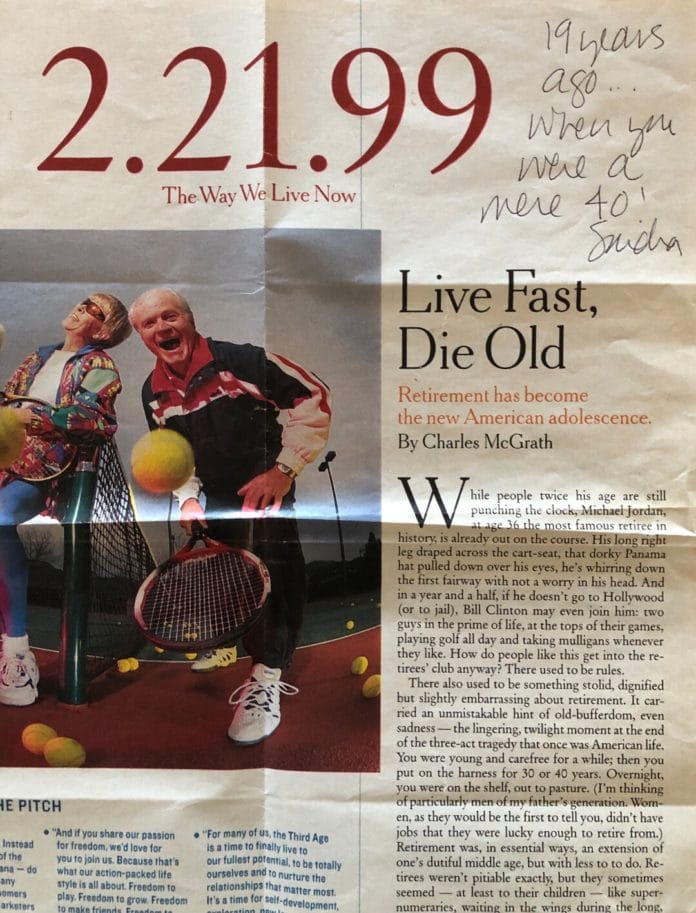The brilliant Sandra Kulli gave me this last week. She had been saving it for 19 years knowing there would, at some point, be a use for it. That alone is remarkable.
We had assumed when we started using the Live Fast Die Old tag line, that we had cleverly invented a turn of phrase. It turns out that actually, Charles McGrath coined it way earlier.
But how about what they are saying about retirement and old age? They have some of the facts correct: we are living longer, healthier than ever before. It is the lifestyle forecasting that is totally off base. Most people, although not all, would be aghast at the Jimmy Buffett retirement communities. I guess if your goal is to drink and smoke yourself to death, then you have found your nirvana. Have at it.
The reason that we founded AGEIST, was that we saw a huge group of people who were not done yet; done in the sense of having an effect on the world — maybe their work, their passions, their church or their families. It required being engaged in the world, keeping their bodies functioning at a high level, and really kicking butt. This is exactly the opposite of what was expected of people our age 20 years ago. They thought we would be reliving our imagined teenage years.
We have yet to meet the 58-year-old who would rather be living as they did at 18. Which doesn’t mean they don’t exist, it just means we haven’t found one yet.
The gift of living longer and living healthier is that we can do stuff, if we choose. At AGEIST, we don’t tell other people how to live. Everyone has the absolute right to live the way they want to. But if someone asked me, I would suggest that acting as an unrestrained sitcom teenager maybe incompatible with other long-term goals.
“Without the traditional second act of extended middle age, the formerly ineluctable tragedy of life turns into an idyll or into one of Shakespeare’s late comedies, where in the end youth and age are happily indistinguishable. The more you think about it, the new retirement, with its emphasis on sports, on driving and on what amounts to romantic dates with your spouse, suspiciously resembles old-fashioned adolescence.” NYTimes 2/21/1999



